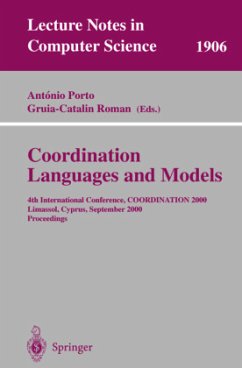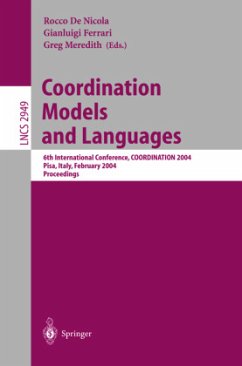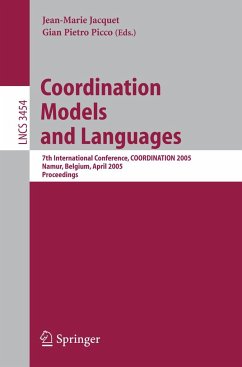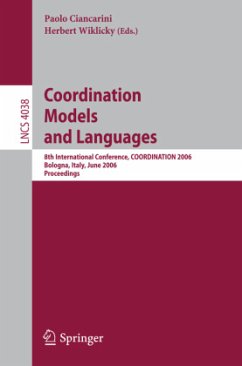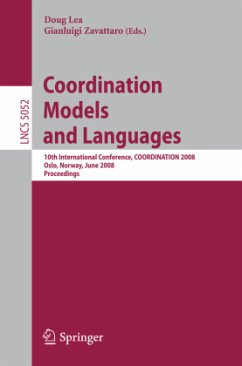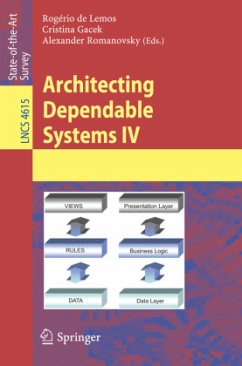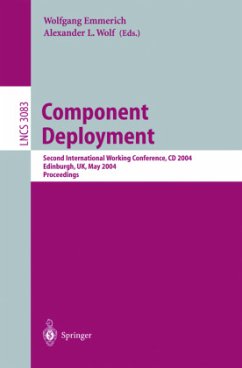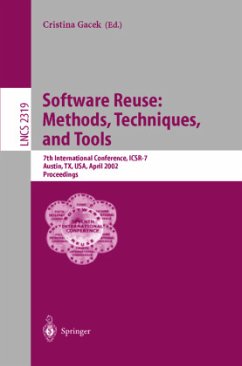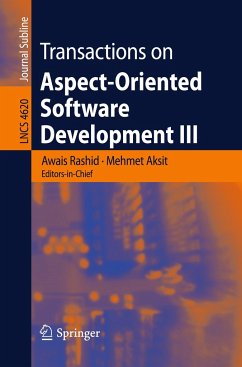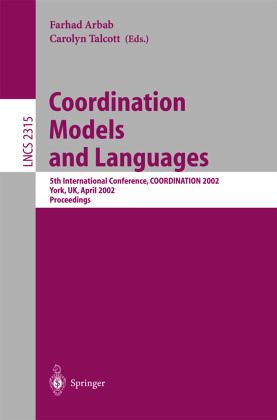
Coordination Models and Languages
5th International Conference, COORDINATION 2002, YORK, UK, April 8-11, 2002 Proceedings
Herausgegeben: Arbab, Farhad; Talcott, Carolyn

PAYBACK Punkte
20 °P sammeln!
This volume contains the proceedings of the Fifth International Conference on Coordination Models and Languages (Coordination 2002), held in York, UK, 8-11 April 2002. Coordination models and languages close the conceptual gap - tween the cooperation model used by the constituent parts of an application and the lower-level communication model used in its implementation. Coordinati- based methods provide a clean separation between individual software com- nents and their interactions within their overall software organization. This se- ration, together with the higher-level abstractions o?ered ...
This volume contains the proceedings of the Fifth International Conference on Coordination Models and Languages (Coordination 2002), held in York, UK, 8-11 April 2002. Coordination models and languages close the conceptual gap - tween the cooperation model used by the constituent parts of an application and the lower-level communication model used in its implementation. Coordinati- based methods provide a clean separation between individual software com- nents and their interactions within their overall software organization. This se- ration, together with the higher-level abstractions o?ered by coordination models and languages, improve software productivity, enhance maintainability, advocate modularity, promote reusability, and lead to software organizations and arc- tectures that are more tractable and more amenable to veri?cation and global analysis. Coordination is relevant in design, development, debugging, maintenance, and reuse of all complex concurrent and distributed systems. Speci?cally, - ordination becomes paramount in the context of open systems, systems with mobile entities, and dynamically re-con?gurable evolving systems. Moreover, - ordination models and languages focus on such key issues in Component Based Software Engineering as speci?cation, interaction, and dynamic composition of components.





